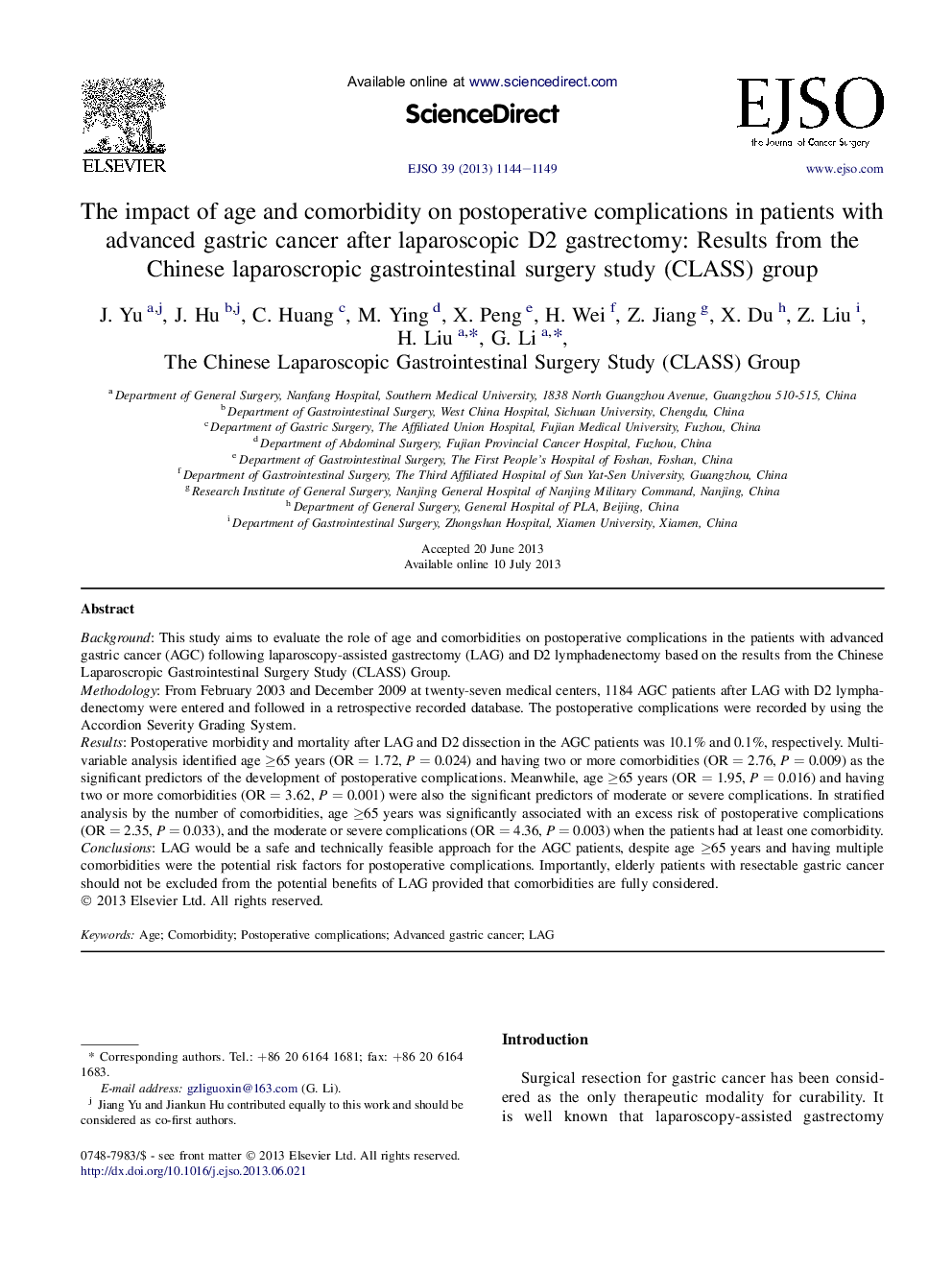| Article ID | Journal | Published Year | Pages | File Type |
|---|---|---|---|---|
| 3985150 | European Journal of Surgical Oncology (EJSO) | 2013 | 6 Pages |
BackgroundThis study aims to evaluate the role of age and comorbidities on postoperative complications in the patients with advanced gastric cancer (AGC) following laparoscopy-assisted gastrectomy (LAG) and D2 lymphadenectomy based on the results from the Chinese Laparoscropic Gastrointestinal Surgery Study (CLASS) Group.MethodologyFrom February 2003 and December 2009 at twenty-seven medical centers, 1184 AGC patients after LAG with D2 lymphadenectomy were entered and followed in a retrospective recorded database. The postoperative complications were recorded by using the Accordion Severity Grading System.ResultsPostoperative morbidity and mortality after LAG and D2 dissection in the AGC patients was 10.1% and 0.1%, respectively. Multivariable analysis identified age ≥65 years (OR = 1.72, P = 0.024) and having two or more comorbidities (OR = 2.76, P = 0.009) as the significant predictors of the development of postoperative complications. Meanwhile, age ≥65 years (OR = 1.95, P = 0.016) and having two or more comorbidities (OR = 3.62, P = 0.001) were also the significant predictors of moderate or severe complications. In stratified analysis by the number of comorbidities, age ≥65 years was significantly associated with an excess risk of postoperative complications (OR = 2.35, P = 0.033), and the moderate or severe complications (OR = 4.36, P = 0.003) when the patients had at least one comorbidity.ConclusionsLAG would be a safe and technically feasible approach for the AGC patients, despite age ≥65 years and having multiple comorbidities were the potential risk factors for postoperative complications. Importantly, elderly patients with resectable gastric cancer should not be excluded from the potential benefits of LAG provided that comorbidities are fully considered.
